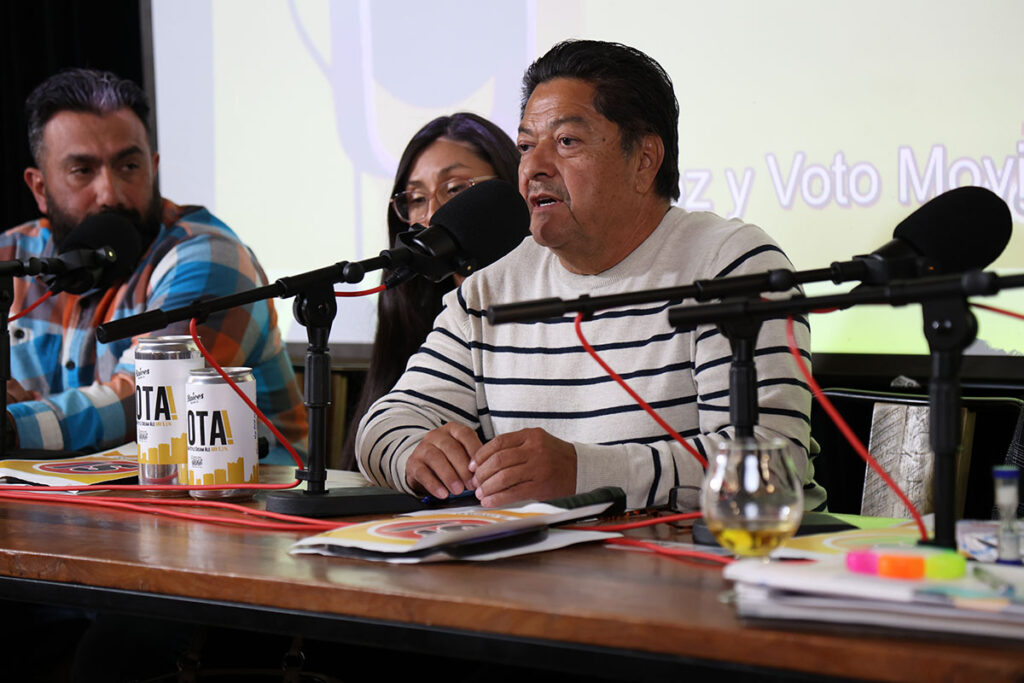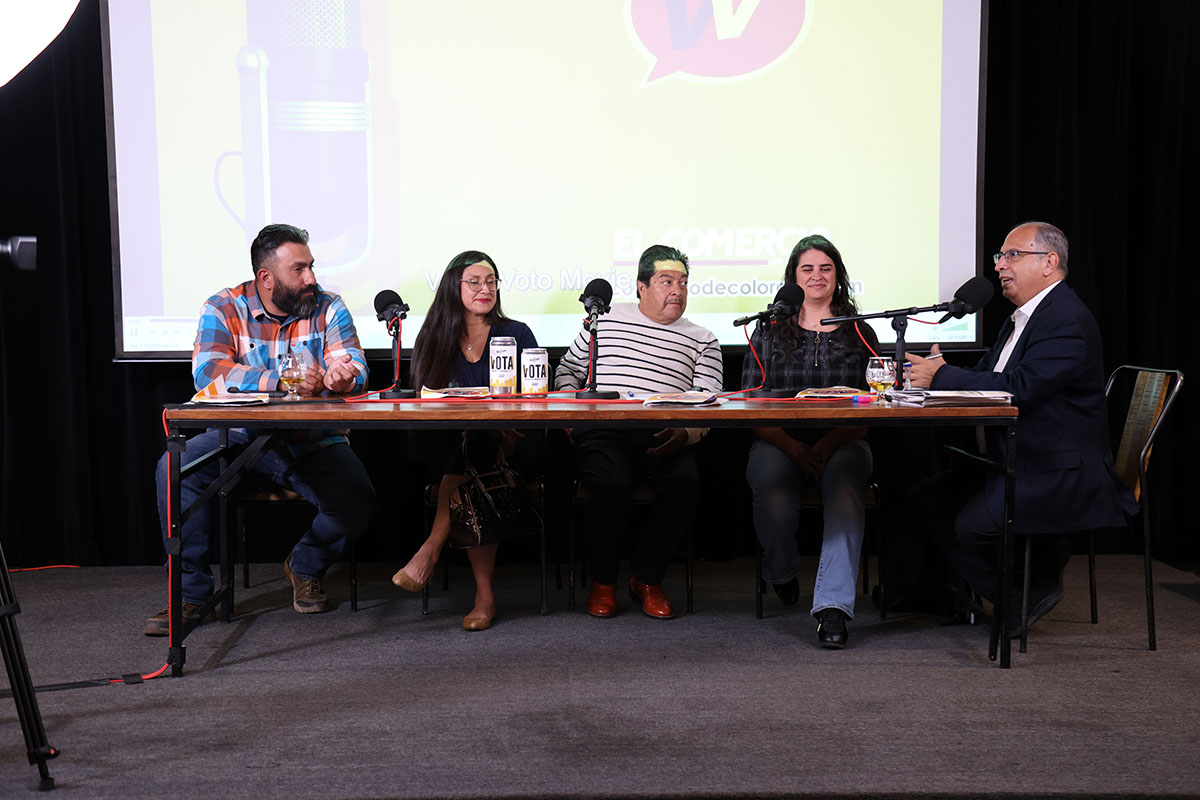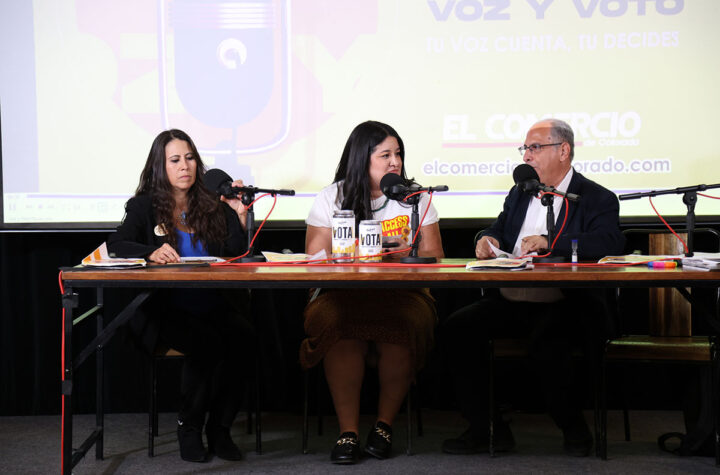
VOICE AND VOTE | Armando Payán during a discussion with other Hispanic voters. (Photos/Felipe Arredondo)
LEARN ABOUT QUESTION 2R ON THE BALLOT
Newsroom El Comercio de Colorado
Haga click aquí para leer la versión en español
Denver, the capital of Colorado and the main urban area of the 1st Congressional District, has experienced accelerated population growth over the past decade. Between the 2010 and 2020 censuses, its population increased by 17%. However, this growth has been accompanied by a decrease in the proportion of Hispanics residing in the city, as many have been forced to move north in the state due to the high cost of housing.
Access to affordable housing is a crucial issue for many, especially for the Hispanic community, which represents 26% of Denver’s population. To understand the opinions of Hispanic voters, we gathered four district residents: Guillermo Díaz, Jenny Silva, Armando Payán, and Rosa Martínez, who share their perspectives on the housing crisis and possible solutions.

Regulations and Equitable Access
Díaz, with extensive experience in the construction industry, highlights that one of the main obstacles to solving the housing problem is excessive regulations. “The American dream of owning a home has become unattainable for many,” Díaz says. For him, high construction costs, exacerbated by strict standards, hinder the creation of affordable housing.
Díaz notes that requirements like installing charging stations for electric vehicles in new constructions further increase project costs, limiting the supply of housing and affecting those seeking affordable options. Meanwhile, Silva, another district resident working in nonprofit administrative roles, believes that Denver is not doing enough to assist those facing a housing crisis.
“There are support programs, but they’re not enough for the number of people who need them,” Silva comments. She suggests there should be a more structured process that classifies people based on their level of need, facilitating access to rental or home-buying assistance programs. She believes the problem lies in the lack of a system for equitable access to housing opportunities.

PANEL | Guillermo Díaz, Jenny Santos, Armando Payán, and Rosa Martínez.
Government Support vs. Free Market
On the other hand, Armando Payán believes that financing is key to improving access to housing. He suggests implementing more accessible credit options, such as 40-year mortgages or reduced interest rates, to facilitate home ownership for many Hispanics in Denver. Additionally, he believes the government should focus on helping workers improve their skills to access better-paying jobs.
“Higher-paying jobs for well-trained workers would increase the capacity to acquire housing and contribute to the economic stability of Denver’s Hispanic community,” Payán states. In contrast, Rosa Martínez advocates for a free-market solution. She believes that government interventions, although well-intentioned, often complicate the problem.
“The free market should be the one to solve this issue. By facilitating the construction of more housing, supply will increase, and prices will stabilize,” she says. Martínez believes that reducing regulations would allow the market to self-regulate and for supply and demand to find balance.

Question 2R on the Ballot
In response to the housing crisis, on November 5, Denver voters will decide on Initiative 2R, a proposal to increase the sales tax by 0.5% (5 cents per $10) starting in January 2025. Estimated funds of $100 million per year would be allocated to affordable housing programs, primarily benefiting households earning less than 80% of the area’s median income.
This money would be used for new housing construction, preservation of existing units, and subsidies for buyers. Supporters argue that the tax increase will directly address the affordable housing deficit, helping families affected by rising prices. Denver needs around 50,000 affordable housing units to meet demand, and the measure could help reduce this gap.
Critics of the proposal argue that a tax increase could disproportionately affect low-income families. They contend that while building more housing is a positive goal, the increase in basic goods costs could add extra burdens to those already struggling to make ends meet. Some believe that the funds raised may not be enough to resolve this issue.
This debate in El Comercio de Colorado podcast
https://feeds.transistor.fm/hoy-con-el-comercio-de-colorado
You may also like:
Proposal 2Q Seeks to Fund Essential Health Services
Will Slaughterhouses Be Banned in Denver? You Decide
Colorado Votes on Abortion Rights and School Choice






otras noticias
Proposal 2Q Seeks to Fund Essential Health Services
Will Slaughterhouses Be Banned in Denver? You Decide
Colorado Votes on Abortion Rights and School Choice